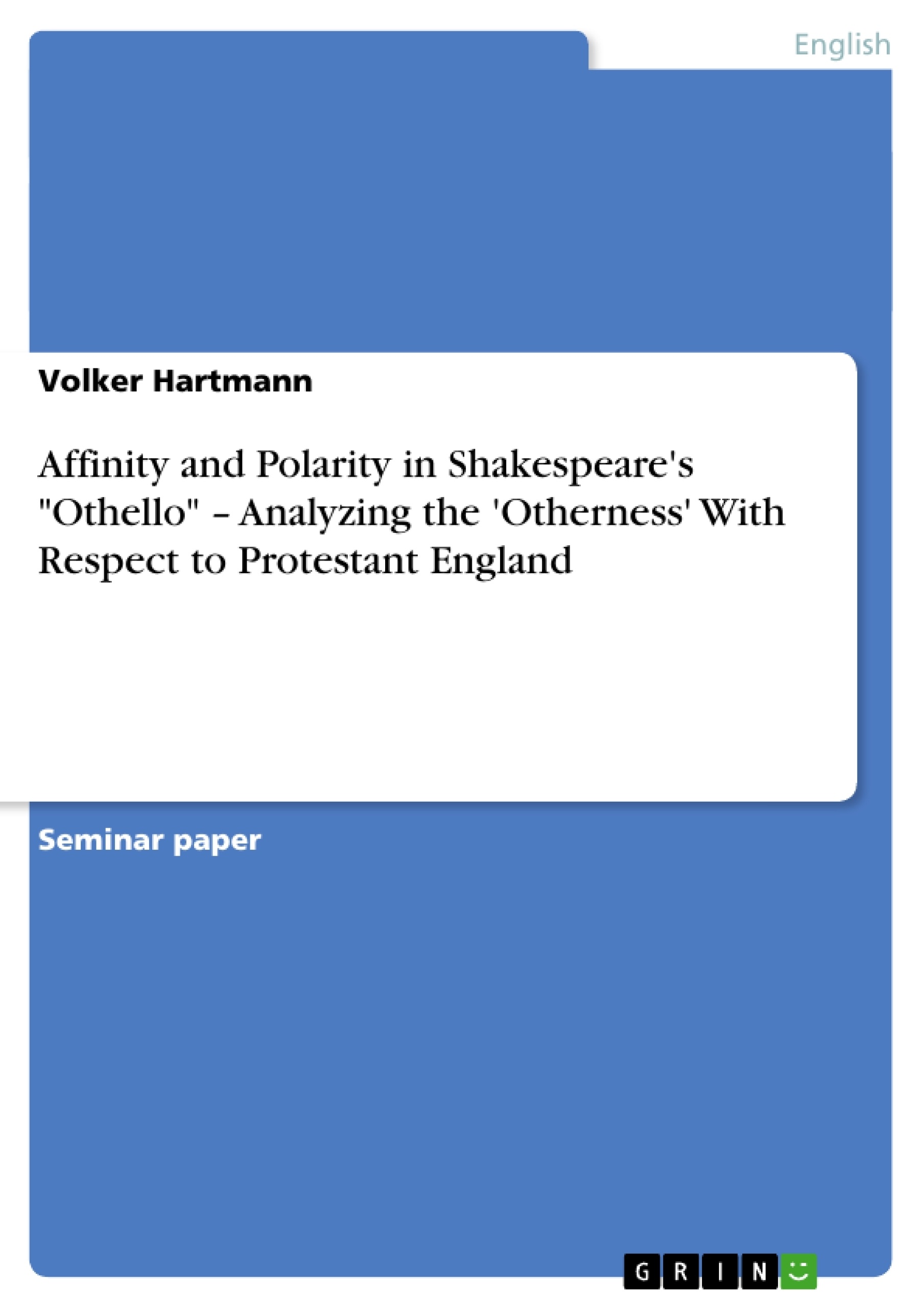William Shakespeare's works are known for their tendency to address foreign culture and religion. In "Othello", the effects of a confrontation between protestant England and the newly-civilized moor are demonstrated through intrigues and mistrust. In this term paper I want to highlight the effects of this confrontation. Moreover, I want to address the tragedy of misunderstanding between foregin cultures and false preachers.
Inhaltsverzeichnis (Table of Contents)
- Introduction
- Iago, the treacherous preacher
Zielsetzung und Themenschwerpunkte (Objectives and Key Themes)
This essay aims to analyze the portrayal of different religions, namely Christianity and "otherness," in Shakespeare's Othello, with a focus on how these religious themes are visualized in the play and secondary material. The essay will also explore the potential influence of historical and cultural contexts on the representation of these themes.
- The significance of religious "otherness" in Shakespearean drama
- The role of Iago as a Christian extremist and his manipulation of religious beliefs
- The representation of Christian intolerance and the suppression of other religions in Elizabethan England
- The intersection of race, religion, and social prejudice in the play
- The significance of visual imagery and language in portraying religious themes
Zusammenfassung der Kapitel (Chapter Summaries)
- Introduction: This section provides an overview of the essay's objectives and its focus on analyzing religious themes in Othello. It also discusses the importance of considering historical and cultural contexts and the value of secondary sources in understanding the play.
- Iago, the treacherous preacher: This chapter delves into Iago's character and his motivations for manipulating Othello. It explores how Iago uses religious rhetoric and prejudice to further his own agenda, suggesting a connection between Christianity, intolerance, and racial prejudice.
Schlüsselwörter (Keywords)
Key themes and concepts explored in this essay include: religious "otherness," Christianity, Islam, Othello, Iago, prejudice, race, Elizabethan England, historical context, cultural representation, manipulation, rhetoric, and the visual arts.
Frequently Asked Questions about Shakespeare's Othello
What is the main theme of the analysis of Othello?
The analysis focuses on the confrontation between Protestant England and "otherness," specifically looking at how foreign culture, religion, and race are portrayed.
How is Iago characterized in this essay?
Iago is portrayed as a treacherous preacher or Christian extremist who uses religious rhetoric and prejudice to manipulate others and fulfill his own agenda.
What role does the historical context of Elizabethan England play?
The context of Elizabethan religious intolerance and social prejudice is used to understand the representation of Othello and the motivations of characters like Iago.
What is the "tragedy of misunderstanding" mentioned?
It refers to the tragic consequences arising from the clash between foreign cultures and the influence of false preachers who exploit cultural differences.
How are visual imagery and language used in the play?
They are significant tools for portraying religious themes and reinforcing the sense of "otherness" and racial prejudice prevalent in the setting.
- Citation du texte
- Volker Hartmann (Auteur), 2011, Affinity and Polarity in Shakespeare's "Othello" – Analyzing the 'Otherness' With Respect to Protestant England, Munich, GRIN Verlag, https://www.grin.com/document/208180



